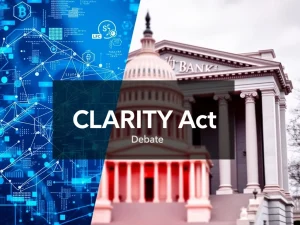Bitcoin News Today: Asia’s Web3 Market Thrives as Regulatory Shifts Drive Enterprise Adoption

The Asian Web3 market is undergoing a transformative phase, with regulatory frameworks evolving to support enterprise adoption of Bitcoin and digital assets. Discover how key markets like Thailand, Singapore, and Japan are leading the charge.
How is Asia’s Web3 Market Maturing?
The Q2 2025 Asia Web3 market showcased significant progress in regulatory clarity and enterprise engagement. Here’s a breakdown of key developments:
- Thailand launched G-Tokens, a government-issued digital bond initiative, marking a rare public-sector entry into tokenized finance.
- Singapore enforced strict licensing, banning unlicensed firms from overseas operations to curb regulatory arbitrage.
- South Korea debated KRW-backed stablecoins ahead of its presidential election, with incremental progress in crypto donation guidelines.
- Vietnam reversed its cryptocurrency ban, legalizing digital assets under new industry laws.
What Role Does Bitcoin Play in Enterprise Adoption?
Japan’s corporate sector is leading institutional Bitcoin adoption, with firms like Remixpoint securing substantial returns on BTC holdings. Key highlights:
- Sumitomo Mitsui collaborated with Ava Labs on stablecoin development.
- Mercoin expanded XRP trading services.
- Chinese companies leveraged licensing frameworks to access global Web3 markets.
How Are Regulatory Frameworks Shaping the Future?
Asia’s regulatory landscape is balancing innovation with consumer protection:
| Country | Regulatory Move |
|---|---|
| Philippines | Mandatory influencer registrations for crypto promotions and StratBox sandbox for experimentation. |
| China | Advanced digital yuan internationalization, with Shanghai as a cross-border hub. |
Conclusion: Asia as a Web3 Powerhouse
Asia’s adaptability in digital finance positions it as a global leader in Web3 innovation. While challenges like regulatory fragmentation persist, the region’s proactive approach ensures sustained growth in Bitcoin and blockchain adoption.
Frequently Asked Questions (FAQs)
1. What is the significance of Thailand’s G-Tokens?
G-Tokens represent a pioneering move by a government into tokenized finance, setting a precedent for public-sector digital asset initiatives.
2. How is Singapore regulating Web3 companies?
Singapore requires strict licensing, banning unlicensed firms from overseas operations to prevent regulatory arbitrage.
3. Why did Vietnam reverse its cryptocurrency ban?
Vietnam recognized the potential of digital assets and introduced laws to regulate them, though it tightened controls on platforms linked to illicit activities.
4. How are Japanese companies adopting Bitcoin?
Publicly listed firms in Japan are holding Bitcoin as a strategic asset, with infrastructure developments like stablecoins and expanded trading services.










